The Wire, written by David Simon, was more than just a crime drama; it was a brilliant social commentary on urban America. The show explores Baltimore's police, education, politics, and drug trade over the course of five seasons. The deep yet memorable quotes that summarized The Wire's characters and themes were what made the show so powerful. These were not lines of conversation; they were songs about life, power, morality, and survival.
Every quote revealed the show's complexity, providing insight into the ways characters lived within broken systems. The list of ten best quotes emphasizes the wisdom and realism of the series. These quotes became classics because they expressed the truth in the most common yet most powerful way.
**Please note: This article is solely based on the writer's opinion. Readers' discretion is advised.**
10 best lines that defined The Wire (ranked) are given below:
10. “You come at the king, you best not miss.”
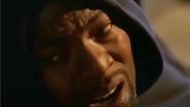
Omar Little utters this well-known quote in Season 1, Episode 8. In this episode, Omar attacks members of the Barksdale Organization, killing Stinkum and wounding Wee-Bey. The plot revolves around Omar’s retaliation over the murder of his partner, Brandon, committed by the Barksdale crew. The calculated action of Omar only reflects his strategic sense and status as a strong enemy of the drug empire.
The sentence serves as a warning that failure is not an option when confronting a powerful individual (referred to as the "monarch"), as failure can have serious consequences. It emphasizes the importance of being precise in matters of power and highlights the high stakes involved in power struggles.
9. “All the pieces matter.”
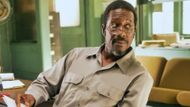
In "The Wire," the sixth episode of Season 1, Detective Lester Freamon said this line. Freamon uses this remark to emphasize the significance of each detail in their inquiry in a conversation with Detective Prez.
The detectives' attempts to piece together the Barksdale organization's operations using wiretaps and surveillance are the main focus of this episode. Freamon's insight refers to the detail of their work and the fact that they must study any piece of information, no matter how insignificant it appears.
The expression expands on the series' central theme, which is the variety of systemic issues and how individual acts relate to larger institutions. It serves as a reminder that to see the big picture, every detail must be considered, adding to the show's complexities.
8. “A man must have a code.”
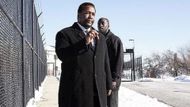
In "One Arrest," the seventh episode of Season 1, Detective Bunk Moreland says this line. In this episode, Bunk and Omar Little talk about the killing of a civilian, Gant. Omar, known as a thief from drug dealers, expresses his hatred for silly killings, saying he doesn’t hurt the ones who are not playing in “the game.” Bunk admits this by saying this line.
This exchange speaks of the complicated moral realm of the show in which those who work outside the law follow personal ethics. Bunk emphasizes the importance of having a set of principles, regardless of one's social status. It is a side effect of the program that explores morality in dirty systems and individuals.
7. “The king stays the king.”

In season 1, episode 3, D’Angelo Barksdale says this while teaching Bodie and Wallace how to play chess. He plays the drug trade hierarchy game, in which the king, or drug kingpin, is at the top, while pawns, or street-level dealers, are expendable and rarely advance in rank.
This episode is an example of the rigid structure of the drug world, where power dynamics are established and movements upwards are made difficult. D'Angelo's insight reveals his understanding of the systematic nature of their surroundings and the problems of the bottom. The line encapsulates the show's themes, such as institutional inertia and the struggle to overcome the prearranged position.
6. “I got the shotgun. You got the briefcase.”
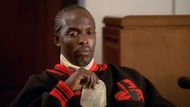
In Season 2 Episode 6, Omar Little says this in a courtroom scene. He is testifying against one of the Barksdale Organization, ‘Bird’ Hilton, for the murder of a civilian. Under cross-examination, the defense lawyer Maurice “Maury” Levy tries to destroy Omar’s credibility by saying that he is a parasitic criminal who prospers from the violence of the drug trade.
This debate emphasizes the blurred lines between those who profit from the legal aspects of the system and street criminals. Omar implies that, while he makes a living with a shotgun, Levy uses his legal skills, i.e., the briefcase, to defend and thus facilitate drug dealers; in other words, they both play the same game. The line criticizes the moral blind spot in institutions, imparting the information that legality does not always translate into moral high ground.
5. “Man, money ain’t got no owners. Only spenders.”

Omar Little says this line in Season 4, Episode 4, titled "Refugees." In this episode, Omar bravely raids a high-stakes poker game at drug lord Marlo Stanfield's house. While Omar gathers up the winnings, Marlo accosts him, and he asserts ownership of the winnings.
The scene reflects Omar's courageous nature and philosophical approach to wealth. Omar violates property rights, especially when it comes to illicit riches, by claiming that money has no true owners because its true owners are those who spend it.
He implies that money is fleeting in their society and that having control over it is a delusion. This view projects the ephemeral nature of power and material objects in the turbulent drug business of Baltimore.
4. “The game is rigged, but you cannot lose if you do not play.”
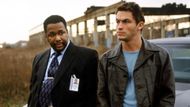
In the episode The Detail, Marla Daniels says this line to her husband, Lieutenant Cedric Daniels. Cedric is annoyed by political barriers to his investigation of the Barksdale Organization. Marla exhorts him to stay out of a corrupt system, suggesting that by doing so, he would escape the eventual loss.
This line conveys the show's theme of systemic dysfunction, as institutions are often so broken that no success is possible. Marla's perspective illustrates the ethical conundrum that faces individuals attempting to reform tainted systems.
3. “Where’s Wallace?”

D'Angelo Barksdale utters this eerie statement during the "Cleaning Up" episode. After Wallace, one of the young dealers, gets murdered due to the orders by Stringer Bell, D’Angelo approaches Stringer and Avon Barksdale, demanding to know where Wallace is. His repeated question, "Where's Wallace?" represents his disappointment with the ruthlessness of the drug organization.
D’Angelo’s heartfelt outcry is the turning point for his character because he starts to doubt his allegiance to his family and its criminal business. The scene plays to the human cost of the drug trade and the interlocks of those involved in it.
2. “Shiiiiiiiiiit.”
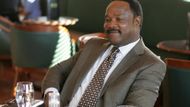
Senator Clay Davis, as played by Isiah Whitlock Jr., is famous for his long “Shiiiiiiiiiiiit” exclamation, which he shouts through the series. This catchphrase recurs in various circumstances where Davis faces unfavorable news or difficult conditions. For example, in Season 5, Episode 5, known as “React Quotes,” Davis says this statement when he runs into legal problems. His loose pronunciation reflects his character's corrupt and flamboyant nature, which he emphasizes with humor.
The phrase was written in the air, spread beyond the show, became a cultural meme, and represented Davis's ability to convey dismay and disbelief in such an unusually memorable manner. It captures the mixture of drama and black comedy in the show, showing off the colorful characters of the political scene of Baltimore.
1. “The game ain’t in me no more.”
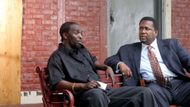
In Season 3, Episode 6, entitled “Homecoming,” Dennis “Cutty” Wise, portrayed by Chad L. Coleman, takes his one-time employer, Avon Barksdale, head-on to announce his exit from the world of crime. However, upon emerging from the streets after the period of incarceration, Cutty tries to re-enter the drug trade, but he cannot engage in violent acts.
Avon respects Cutty's decision to walk in a different direction. Later on, Cutty opens a boxing gym where he mentors the youth to avoid crime. This line emphasizes redemption and personal growth despite harsh realities, and therefore it has been ranked at position 1 in the list.
These ten quotes made an everlasting impression upon the viewers because they captured the crude truthfulness and profundity of The Wire. The words conveyed the brutal truths of life in Baltimore, regardless of whether it was Omar's unafraid wisdom, Clay Davis's humorous corruption, or Cutty's quiet strength.
These lines helped shape the show's reputation as one of the greatest dramas ever made for television. They demonstrated how individuals, whether law enforcement officers, criminals, or politicians, battled inside an unfriendly system. Viewers may notice how, despite the darkness, there might be brave and enlightening moments that could brighten the shadows.
In the end, these words were about a show that dared to discuss real issues with such audacity, insight, and raw, unfiltered speech that made them transcend being mere character quotes.
